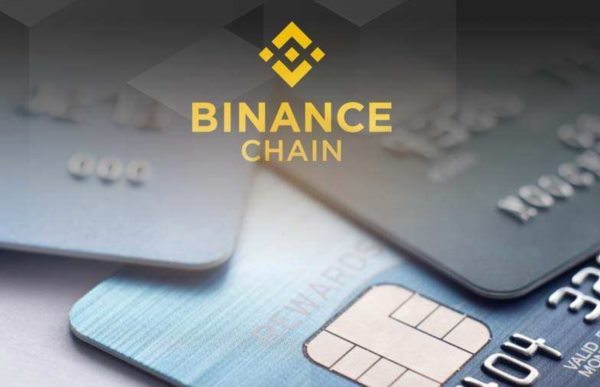时间:2023-08-12|浏览:278
Marta: Rainey, why use a decentralized network to carry out your mission?
Rainey Reitman is a board member of FFDW. She is a prominent civil rights activist, having worked with organizations like the Electronic Frontier Foundation and the Freedom of the Press Foundation. Her work has been primarily focused on decentralized networks.
I'm drawn to projects in decentralized networks because I see how centralized networks frustrate users every day. I don't think we need profit-driven networks that sacrifice consumer choice and privacy with terms of service abuse when we access websites. Instead, we need to consider creating a digital experience that isn't beholden to untrustworthy tech monopolies.
Decentralized alternatives provide a refuge for users who want to opt-out of dealing with monopolistic tech companies in the short term, and in the long term, they can create market alternatives that respond more quickly to the actual needs of users. I see Filecoin as an integral part of the decentralized toolkit ecosystem that explores and designs a better digital future. Our foundation is focused on guiding Filecoin in fulfilling its mission to serve humanity and supporting the broader decentralized network.
Marta: Sheila, how do you view the impact of blockchain and distributed ledger technology on the world?
Sheila Warren is Head of Blockchain and DLT at the World Economic Forum.
When nobody is talking about blockchain technology anymore, that's how you know you've "arrived." It will become self-evident when every tech stack has integrated blockchain at some point. When everything from storage to payments is decentralized, we'll build and innovate everything on top of that foundational assumption.
It's important to have a cultural shift in mindset. People need to recognize the many benefits of peer-to-peer. Whenever you have intermediaries, you're not just paying them, but you're also giving them power. Control that appears in many forms of power, such as manipulation or surveillance, can be used. Removing these intermediaries can unlock tremendous power. However, we haven't yet seen the cultural understanding of what these intermediaries have been doing all along.
One of the things we hope for is that Filecoin's efforts will be globally oriented. We believe it needs to be more globally and internationally minded.
Marta: Joe, Ethereum's growth has been astounding. How does Filecoin Foundation establish an ecosystem and achieve widespread adoption like Ethereum?
Joe Lubin advises the Filecoin Foundation. He is a co-founder of Ethereum and the founder and CEO of ConsenSys.
Many people in our ecosystem are building decentralized protocols with the common understanding that these protocols will interconnect and interoperate. Together, they will constitute an increasingly decentralized internet and web. ConsenSys has been close to Protocol Labs projects since the beginning. There are deep similarities between the Ethereum ecosystem and the Protocol Labs ecosystem. So far, Protocol Labs has done an outstanding job. To continue being a crucial part of the decentralized network architecture, they need to consider the community, cryptoeconomics, marketing, smart, philosophically aligned talent, and ecosystem investments.
Equally important, in addition to the crypto audience, we need to consider enterprises. It's important to build developer tools for startups - for revolutionaries. But you also need to make the technology comfortable and understandable for enterprises - for evolutionaries.
Marta: How does a decentralized network solve the significant issues you're addressing?
Danny O'Brien advises FFDW. He is an internationally renowned activist in online speech freedom and privacy protection. He has been involved with the Electronic Frontier Foundation (EFF) and is a founding member of the UK Open Rights Group.
The problems we are addressing at EFF and other civil rights organizations dealing with the internet have become increasingly global. They are no longer limited to a specific country or region. Therefore, we are now looking at solutions that can scale globally. The lessons learned over the past years are that any centralized solutions actually do not scale when dealing with global issues of civil liberties and human rights. I'm interested in decentralized networks and how to decentralize them not only technologically but also geographically, supporting the diversity of people living in the digital world.
Marta: What is the current state of blockchain policy, and what should our policy goals be?
Kristin Smith is the Executive Director of the Blockchain Association, a leading industry association dedicated to blockchain policy.
In terms of a broad crypto policy framework, we don't have a national framework for how to handle blockchain and cryptocurrencies. We face challenges in defining different types of cryptocurrencies, and there's a lot of uncertainty due to the lack of definitions in terms of what regulations apply and when they apply. We do have some bright spots. Congress has introduced some very thoughtful legislative proposals, but there is a lot of work still to be done.
I think the policy goals are well-known. We need to figure out how to categorize different types of cryptocurrencies. We need to know the tax policies. We need clarity on how to handle the cryptocurrency markets and ensure the integrity of those markets.
Filecoin Foundation and FFDW group other members.
The Filecoin Foundation members include:
Board: Brain Behlendorf, Marta Belcher, Rainey Reitman
Advisors: Alex Feerst, Georgia Quinn, Meredith Barge, Sheila Warren, Joe Lubin, Sandra Ro, Katie Biber, Kristin Smith
Managers: Clara Tsao, Megan Kliman
Staff: Philipp Banhardt









![[加密艺术家]Avalanche 基金会推出 1 亿美元基金](/img/20240127/3345049-1.jpg)